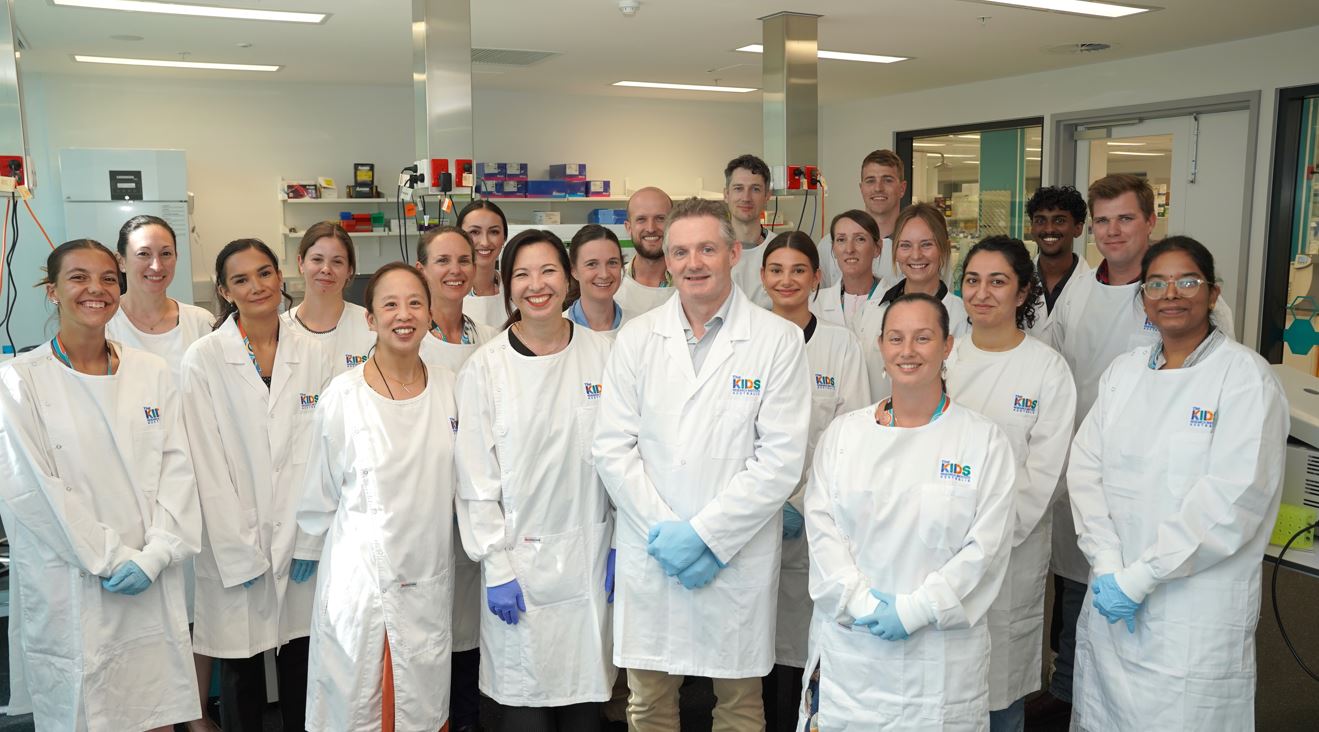Search
Showing results for "Au"
Research
Genetic susceptibility to otitis media in childhoodReviewed in this article these studies have identified positive association at 21 genes with association at five of these replicated in independent populations.
Research
FBXO11, a regulator of the TGFΒ pathway, is associated with severe otitis media in Western Australian childrenOtitis media (OM) is a common childhood disease characterised by middle ear inflammation following infection
Research
FluBubs: Safety and immunogenicity of Early Quadrivalent Influenza VaccineChristopher Tobias Blyth Kollmann MBBS (Hons) DCH FRACP FRCPA PhD PhD, M.D., SFUW Centre Head, Wesfarmers Centre of Vaccines and Infectious Diseases;

News & Events
Celebrating Women in Science: A Conversation with Dr. Jackie Davis - Co-Director, ORIGINSIn honour of International Day of Women and Girls in Science, we celebrate women in STEM and their incredible contributions to the field, aiming to inspire the next generation of female scientists.

News & Events
Anti-bullying champion Professor Donna Cross inducted into WA Science Hall of FamePioneering anti-bullying researcher Emeritus Professor Donna Cross OAM was last night announced as the latest inductee into the WA Science Hall of Fame.

Research
WA Aboriginal Child Health Survey (WAACHS) Linked Data StudyThis study is a partnership between researchers, the Aboriginal community and government to provide evidence for policy and practice addressing high priority health and wellbeing issues for Aboriginal children and families.

We strive for a future where no child will die from brain cancer because we have developed new therapies that will cure their disease.

Research within this theme is exploring what it takes to help a child flourish and develop resilience as well as investigating long-term impacts on mental and physical health from childhood experience.

Mental health and wellness is critical to the overall wellbeing of a person, and can also impact on physical health. Researchers are exploring the mental wellbeing of mothers and their experience of motherhood and pregnancy, and effective support options available. Mental health development of the child is also explored, as well as the impact of the COVID-19 pandemic on our ORIGINS families.
Research
Aboriginal Urban Healthy Skin studyAsha Brad Glenn Jonathan Marianne Tim Bowen Farrant Pearson Carapetis AM Mullane Barnett BA MBBS DCH FRACP PhD GAICD FAHMS OAM BSc (Hons), PhD BA (
